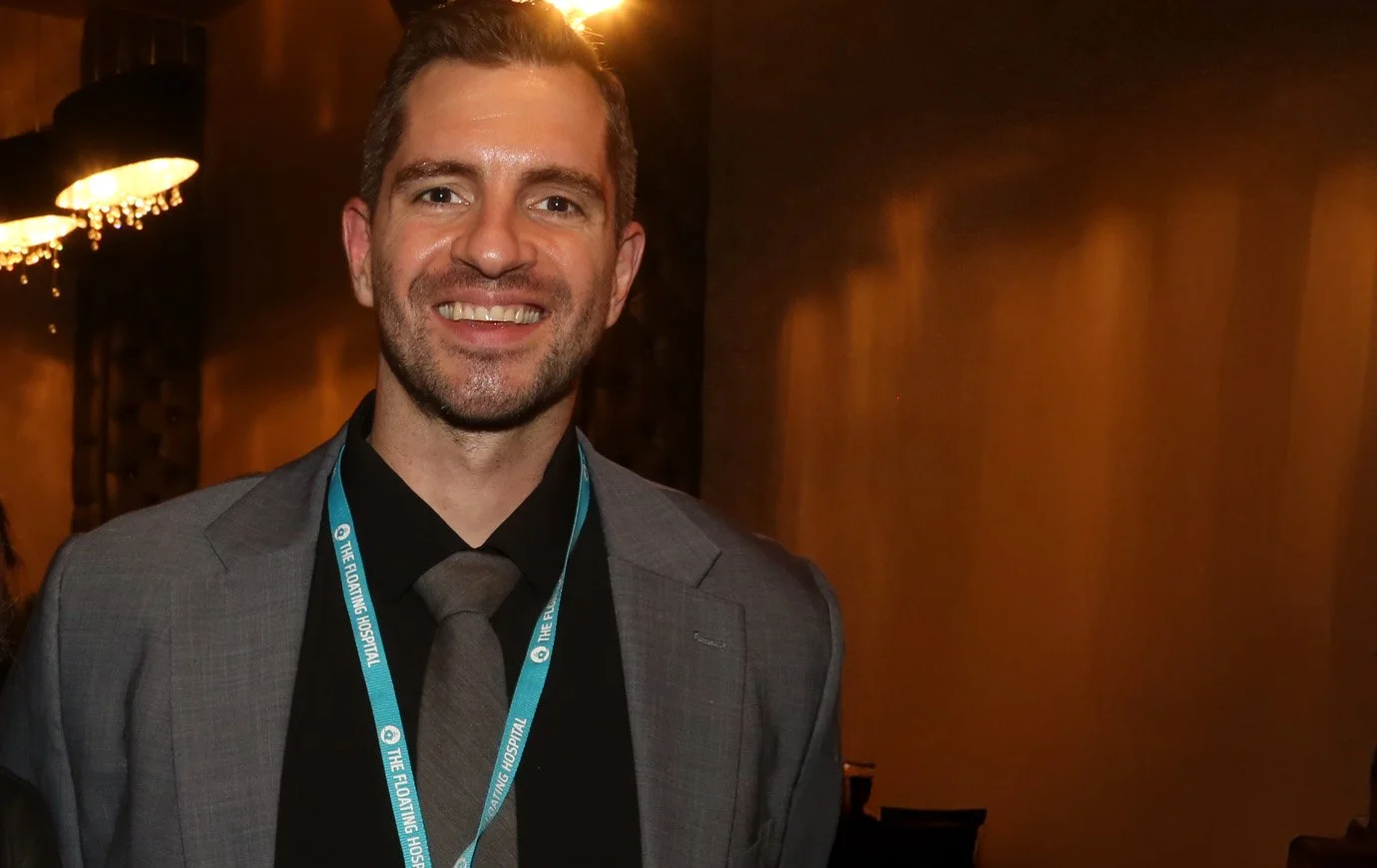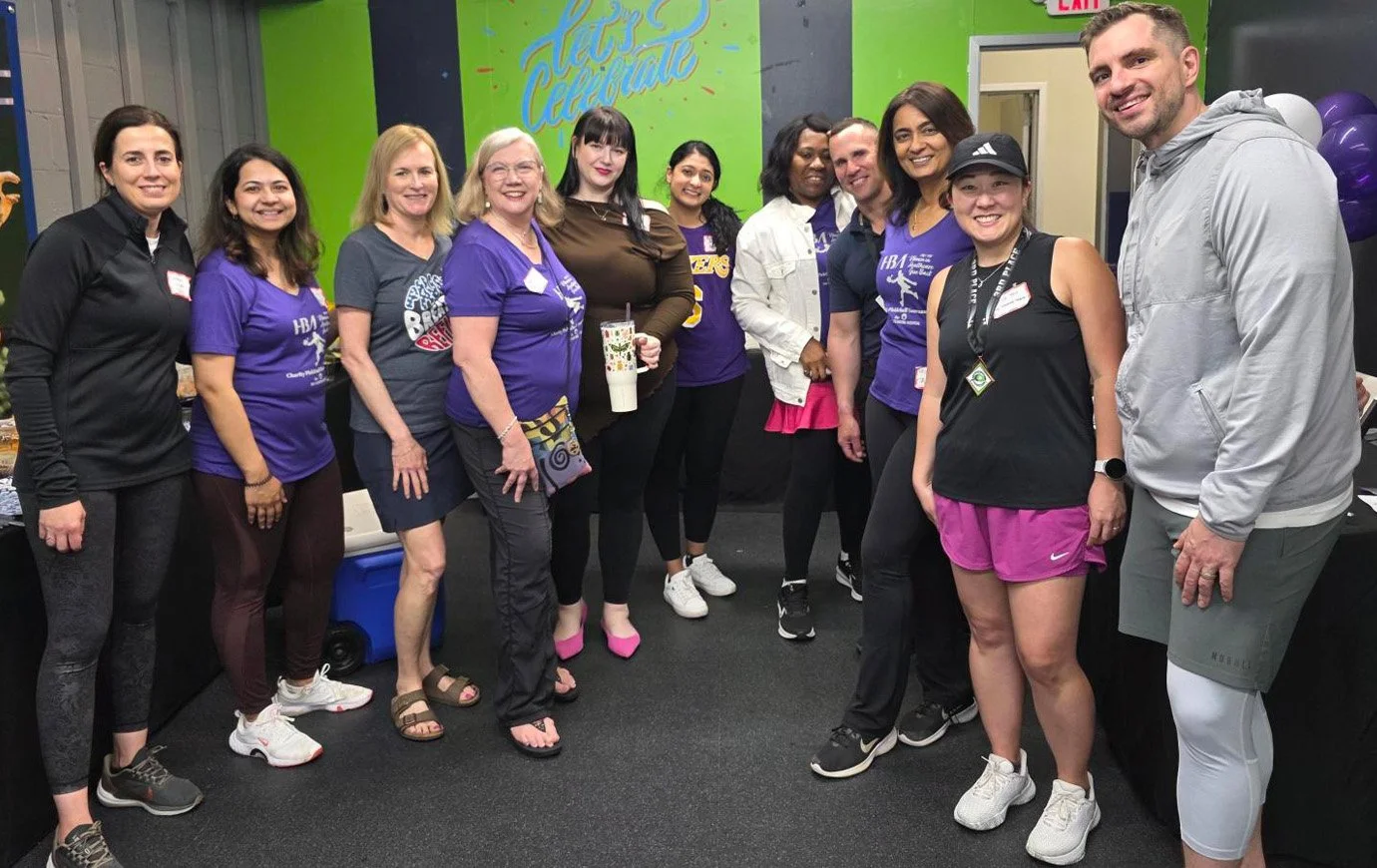A Fresh Face in Fundraising
A Michigander by birth and background, Kevin Douglas has felt the pull of New York City repeatedly in his adult years and is currently raising a toddler with his wife, Tiahna, on Roosevelt Island. Our new director of philanthropy noted—with the satisfaction of someone relishing their commuting luck—that he is a single subway stop between our Midtown administrative offices as well as our main clinic in Long Island City.
It’s not the main reason he chose to join The Floating Hospital, but it’s a nice bonus. And we’re thrilled he’s with us, bringing additional energy and spirit to our development aims at a time when we’re making, in his words, “strategic investments to strengthen and expand our fundraising model—rooted in the conviction that generosity, when stewarded well, can change lives on both sides of the gift.”
In the months ahead, he will lead a team that will “continue to tell our story with clarity and heart—so every donor understands the real human impact of their support. This isn’t just about dollars raised; it’s about deepening trust and building a sustainable movement of care,” he said.
A cold winter
He was in the midst of a job search when a recruiter called him about The Floating Hospital. It was a backstop measure while the refugee resettlement group he worked for, Church World Service, reeled from the gutting of its programs by an executive order from the current administration. “In about two weeks, we went from a 2,700 employee and almost $300 million organization to a 900 employee, $70 million organization,” he recalled. “It was brutal.”
As director of marketing and fundraising, he had to let go of six of eight staffers on his team with only 12-hours notice. “All access to resources was gone. Most global teams were furloughed immediately. We were in survival mode.” Even though CWS won the lawsuit to get its funding back in March, the money still hasn’t been released. He began “throwing his name in the hat… just in case the worst happened.” He loved what he was doing, but “if something perfect came around, I would be open to it.”
Kevin, far right, at HBA’s Pickleball event, that helped raise funds for The Floating Hospital.
The winding road
Since graduating from Central Michigan University with a degree in marketing, his career path has had its share of pivots. First, he co-founded a digital marketing company for commercial businesses that also ran fundraising campaigns for universities and nonprofits. “I was doing a national tour of alumni associations, meeting with folks and pitching and selling,” he said. After four years, he began to wonder if this was the life he wanted.
A couple of his mentors suggested he pursue a seminary degree. Although reluctant to return to school, he ended up “really loving it. I studied Greek, ancient Hebrew, went through it all.”
While he was in school, he took a job at a senior living facility as a chaplain, the first under-60 Protestant pastor in a role previously held by nuns. “It was a pretty powerful, informative place to be, constantly meeting with people in the end stage of life, folks that were either there for a short time rehabbing, or those permanently there.” It was also his first exposure to the medical field.
Admiring their patient-centered care model, he became a lead trainer for the staff. “I also did more funerals than I can count, and a lot of memorial services,” the hardest part of the job. “I don't get to know anybody halfway, or only care a little bit. I'm kind of all in.” It taught him how to grieve effectively and to walk others through it as well. He became really present for others and himself to the fact that all of us will die one day. “It's a horrible thought, right? But that is the reality that we live in.”
It put a lot of things in perspective, including his coursework. Being in Michigan, he encountered many retired auto executives, people “who made tons of money, had all the things, but spent a lot of time working.” Each would have traded it all for “more days of health, time with family, those kinds of things.” It helped balance the “highfalutin theology” he was learning in seminary. In classrooms, they “were arguing about grammar in the Greek and Hebrew… but the people who were dying, they didn’t care how much Hebrew I knew, they needed someone present to them and their pain.”
Empire State of mind
Around this time, he and Tiahna started traveling to New York to visit friends who were part of churches here. After he graduated, they decided to move here. They started a church in 2017, where he was a co-pastor while he raised money for the new congregation and continued to work in marketing for a counseling center. The pandemic drove them back to Michigan, where he "led an international non-profit in conflict transformation work until the remote CWS opportunity presented itself.” They stayed there until last year, after his wife gave birth and took a job that required her to be back in New York City. At this point, he was working remotely for CWS.
After his first Floating Hospital interview, he became taken with our mission. It reminded him of his church days, thinking “It’s a place we would have sent volunteers to.” As he got to know the board and the management, the hospital “jumped to the top of my list and I kind of fell in love with everybody that I met.”
When he’s not working, most other waking hours are “about the boy” Henrik who is 15 months old and the center of their world. “It’s go to work, come home, play with him till bedtime.” On weekends they head out to parks and museums, coffee bars, brew pubs, and church and meet up with friends. Once a Folger’s drinker, his city friends challenged him to be a more discerning coffee consumer. Now, he’s a pour-over convert who grinds his own beans every morning. “We're always on the lookout for good coffee places, great bakeries.” The family’s favorite outing is nice walk with a stop along the way for snacks or treats.
And, of course, he’s loving that commute—“literally seven minutes from the front door of my apartment to the front door of the clinic, and a 15-minute commute to the offices”— which gives him a little more time to enjoy his family, morning workouts and his coffee.


